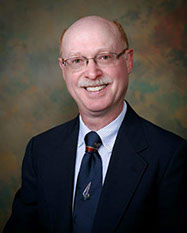After graduating from medical school, the would be practitioner is still required to complete a residency in one of the medical specialties before going into practice. These residencies range from 3 to 5 years or more. After completing the residency, there is then the requirement to take, and pass, a certification exam administered by the Board responsible for the residency program. In my case, I became certified in Surgery, and then, after completing another residency in Thoracic Surgery, became certified in that specialty, also.
Currently, there are at least 24 approved medical specialty boards of the American Board of Medical Specialties (ABMS) and 18 approved medical specialty boards of the American Osteopathic Association (AOA). Most practitioners have to undergo a recertifying exam by their specialty boards every 10 years. These exams are not easy. They require focused study, a detailed application process, and then, a proctored exam. I have maintained both of my certifications. I orginally certified in Surgery in 1984 which means I have recertified in 1994, 2004, and 2014. My orginal certification in Thoracic Surgery was 1992; the recertifications were in 2002 and 2012.
The concept of maintenance of certification (MOC) was to ensure that physicians would work to keep up with advances in their fields, improve their delivery of care, and commit to the necessary lifelong learning needed to practice competently. Studies show that board certified physicians provide better quality of care than those who are not certified. Other studies show that the quality of care of a practitioner decreases as time elapses from the time of their initial certification. This is probably related to new knowledge and new clinical skills needed to keep up with modern practice. An argument has been made that there are ways other than that provided by MOC exam requirements which can help the practitioner keep up and there is no data that the MOC exam fulfills this goal, but it is currently the way the boards want to do it.
As for the legal field, in my State, lawyers are required to do 15 hours of continuing legal education every year in order to maintain their licensure. This is far easier than the requirements for MOC for Surgery or Thoracic Surgery. In fact, once you pass the Bar Exam for your State, no further exams are required. However, if a lawyer wants to practice in another State which may not have a reciprocity arrangement with the original State, another Bar exam may have to be taken and passed. No Bar recertification exam is required for lawyers.
For years, many hospitals, insurance carriers, and medical licensing boards, have used board certification as a necessary requirement for licensing and privileging. Historically, it was up to the Boards to decide the standards needed for assessing clinical competence of their members. It seemed that society was comfortable in letting the medical profession regulate itself; this was probably based on the assumption that the profession had the knowledge, expertise, and training to best understand what their members needed to know in order maintain a lifetime of professional competence.
Through the years, it has become more difficult to maintain certification. The costs are high and the knowledge requirements may not be indicative of an individual’s practice. For example, a thoracic surgeon like myself who mainly does heart surgery, may not keep up on the latest developments of laparoscopic colon resections (which I am unlikely to ever do), yet, the recertifying exam may have questions related to this topic. As for costs, I am required to write a check every year to one of my Boards and this money will go to defraying the costs of the looming recertification exam. These costs come to several thousands of dollars over the 10 year period.
Because of the issues of cost and relevance, many Boards are looking for new ways to evaluate a clinician’s on-going continuation of medical education. For example, the new Director of the American Board of Surgery, Dr. Jo Buyske, is making a reassessment of MOC her top priority after she takes office. She is putting together a task force to look at new ways to assess high value and practice relevant continuing education for surgeons and hopes to have a new MOC process in place by 2018.
Continuing medical education from self-study, taking courses, participating in research, and quality improvement programs are being looked at for relevance and rigor so as to keep the maintenance of certification meaningful. So far, self assessment has not been shown to assure quality of care and more clinical experience in and of itself does not result in improved outcomes. Some form of independent examination is probably needed. Perhaps some of the anguish associated with taking the exams can be alleviated by decreasing the costs and letting the practitioner generate income from his employing hospital or clinic for doing the necessary work to maintain the certification.
The rising costs and questions of relevance relating to the recertification exams has resulted in some pushback and many physicians have lobbied their state legislatures to take a stand against using certification as a necessary credential for hospital or health plan privileging and licensing. For example, Texas recently passed a Bill (SB 1148) which was intended to prevent managed care plans from “differentiating between physicians based solely on a physician’s maintenance of certification in regard to: (1) paying the physician; (2) reimbursing the physician; or (3) directly or indirectly contracting with the physician to provide services to enrollees.”
In Tennesse, my home state, Senate Bill No. 298 states that medical board re-certification will not be required to practice in this state. Similar laws have been passed or proposed in Alaska, California, Florida, Georgia, Maine, Maryland, Massachusetts, Michigan, Missouri, New York, North Carolina, Ohio, Oklahoma, and Rhode Island.
Obviously, there is a significant number of physicians who just do not want to keep taking the exams required for MOC. However, looking for relief from politicians can be problematic.
Letting the state legislatures get involved in questions previously the purview of the Boards is setting a dangerous precedent. Self-regulation in the medical profession has been working well for a long time; standards were set for medical school admissions, medical school curriculum, requirements for granting a medial degree, standards for residency training programs, and guidelines pertaining to competent medical practice i.e., maintaining a medical license. The patients want their physicians to be board-certified and it seems like they prefer some form of periodic recertification; most physicians willingly do this; even though we would like to see the costs decrease, we understand that the Boards need to get income in some way.
State legislatures are ill-equipped to oversee our re-certification programs. By doing away with the significance of what “maintenance of certification” means, the public may perceive this as a nefarious way for the medical profession to lower its standards. This is not a good public relations action and in light of the difficulties the medical profession is facing with new legal requirements, requirements of third party payers (including the government), this not a battle we need to be facing at this time.
It is time for the state legislatures to stay out of the recertification process for physicians. Physicians are still reeling from the effects of the Affordable Care Act with its increases in administrative requirements, decreases in patient contact, and decreases in compensation. Doing away with the recertification process might cause the public to think that their physicians are more interested in maintaining their privileges than in maintaining their standards. This could result in further diminution of the physicians’ stature in our society. This would not be good. Let the certifying boards to their jobs.
 by Darryl S. Weiman, M.D., J.D.
by Darryl S. Weiman, M.D., J.D.
Professor, Cardiothoracic Surgery, University of Tennessee Health Science Center and Chief of Surgery, VAMC Memphis, TN
